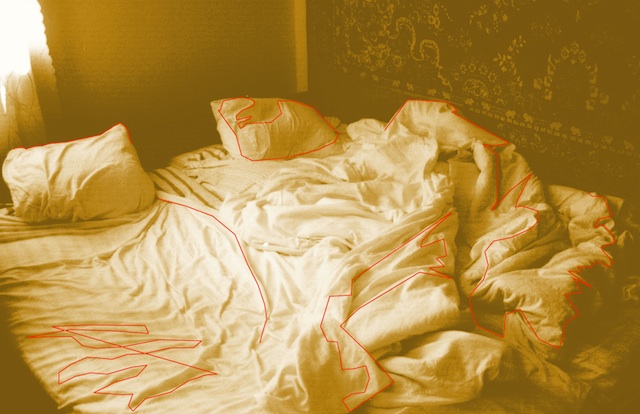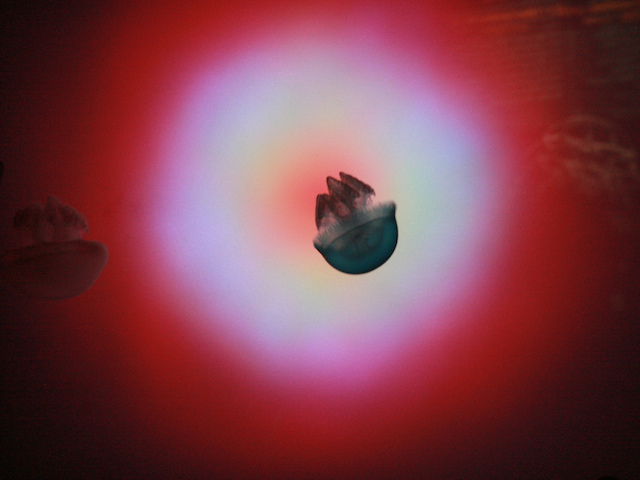‘Mine: thick & black, so coarse / when trimmed, the ends splintered / bare feet.’

October 31, 2017
In June, days after the Supreme Court lifted legal blocks on President Trump’s Muslim Ban save those with “bona fide relationships” to the United States, we asked writers to imagine creative openings and counter narratives as to what a bona fide relationship might be. Trump’s latest iteration of the travel ban was stopped by two federal judges earlier this month. We are publishing a series of stories and poems on The Margins that create new narratives and futures in response to the Muslim Ban. The following poem is the latest in our series. Read more and follow along here.
So blonde
it’s almost white, I insisted, the summer
I convinced my best friend
my hair turned gold in the sun.
That summer, I was fooling anyone
who’d listen, had the third grade girls believing
I heard Hanged Nelly giggle
in the next bathroom stall & swore
I was my mother’s natural born
daughter, just came out looking like this,
a genetic anomaly. Most of them believed me
for a minute or longer & sometimes
I almost did too, imagined myself
a lilting headful of tousled blonde,
the kind any drugstore dye job drank up
in every hue of pink or teal or blue,
held a curl without sticky palmfuls
of L.A. Looks gel, light as my baby brother’s,
hair so pale the public pool tinted it green
after a few months of open-swim.
Mine: thick & black, so coarse
when trimmed, the ends splintered
bare feet. An unruly animal
my patient mother brushed daily –
detangled & laced into days of pigtails
& braids, made me a pretty second
to the chestnut blonde Mormon twins
with their French and Dutch plaits,
headband halos and fishtails — before
the fall I refused to brush my hair
& conjured myself a rat’s nest,
but O how I loved my horde
of snarled darlings, so dark, so generous
of fur & tail & teeth.
The Bona Fide Relationships Portfolio was published with support from the David Rockefeller Fund and the Hemispheric Institute of Performance and Politics.



